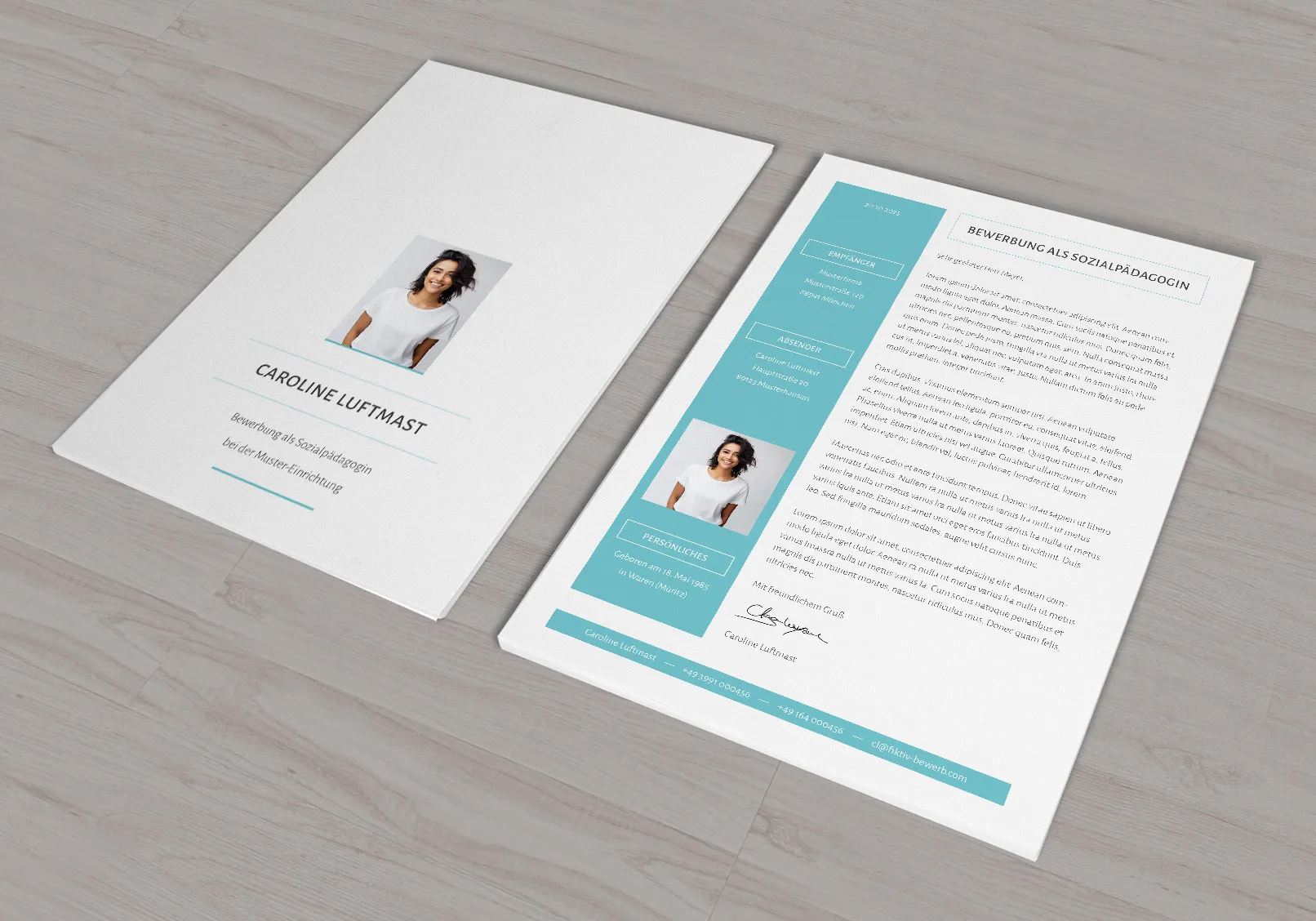The interview is a crucial moment in the job search process where a potential employer assesses your professional skills and personal qualities and checks you as a person to see if you are a cultural fit for the company. One of the most common questions you will be asked in a job interview concerns your ability to critically assess your own strengths and weaknesses. Many job seekers are at a loss when it comes to naming your strengths and weaknesses in an interview. This is because it's not just a matter of good self-analysis, but also the ability to communicate effectively and present your own ideas.
The right approach and an effective approach to answering this question can significantly increase your chances of success. To do this convincingly, it is important that you not only admit your weaknesses, but also explain how you are working to improve them. And how you will use your strengths to achieve your career goals. In this article, I will look at the most important aspects you should consider when preparing so that you can go into the interview with confidence and also answer the difficult questions about strengths and weaknesses skillfully.

Table of contents
Job interview: Why strengths and weaknesses are asked in the job interview
Questions about strengths and weaknesses are used in job interviews for several strategic reasons. Firstly, they allow the employer to assess the applicant's self-confidence. The ability to honestly analyze and acknowledge one's strengths and limitations is an important indicator of professional maturity and personal development. Employers are looking for people who are able to critically question their behavior and effectively work on their weaknesses. Nobody wants Mr. Perfect who doesn't accept any weakness in himself, because such candidates only see others as the cause of mistakes, but never themselves.
Secondly, the answers to these questions help to find out how an applicant fits into the team and the corporate culture. When recruiters recognize a candidate's strengths, they can better assess their potential contribution to the company, while the weaknesses identify the potential risks to the team and project success, as well as the need for support or training for the new employee.
Thirdly, this question tests the candidate's ability to self-improve. Employers are interested in whether a person is working on their weaknesses and whether they have a plan or method for their personal and professional development. The answer to this question shows how motivated and willing the applicant is to face challenges.
When preparing to answer the strengths and weaknesses questions, your preparation as an applicant is crucial to formulate thoughtful and constructive answers that demonstrate a deep understanding of your own qualities and strategies for personal development.
What are your strengths and weaknesses? Questions you should pay attention to
To catch a potential candidate off guard and steer away from the cheesy standard answers, some interviewers ask this question in a covert and veiled way by breaking it down into several sub-questions. You need to be as observant as possible because they may ask about strengths and weaknesses in a covert way, for example:
- What do you think your former boss or colleagues would say about you, positively or negatively?
- What do your friends like most about you?
- How would you rate your determination on a scale of 1 to 10?
- What do you think sets you apart from other applicants?
- Are there situations in which you feel uncomfortable?
- If you could change some of your character traits, what would you change?
- Which of your last tasks did you have the most problems with and what were they?
All these questions can help the recruiter to get an idea of your strengths and weaknesses. That's why you should make a list of awkward questions before the interview, go through them and prepare neutral or conceptually thought-out answers. Divide your answers into two parts: a direct answer and a part in which you describe the methods you used to solve these issues and how you can avoid them in the future.

How to prepare for questions about strengths and weaknesses
In a job interview, questions about strengths and weaknesses are often asked to assess the applicant's self-image and professional maturity. To answer these questions successfully, you not only need to list your qualities, but also demonstrate your ability to think critically and solve problems effectively.
Here is an algorithm that can help you prepare:
Self-analysis: start with a thorough self-analysis and find out which projects or tasks you were most successful at and which you were least successful at. Analyze specific situations to understand what qualities helped or hindered you.
Identify your strengths: Select 3-4 strengths that best fit the requirements of the job you are applying for. Prepare concrete examples of where these traits have helped you achieve good results and where they will help you in the job you are applying for.
Identify your weaknesses: Select 1-2 weaknesses that are not critical to the job. Think about how you can improve them. It is important that you show that you recognize your weaknesses and are actively working to eliminate them.
Formulate your answers: Formulate your answers in such a way that they sound positive and constructive. Even when you talk about your weaknesses, you should emphasize that you are willing to learn and develop.
Practice: Talk through your answers beforehand. You can do this alone or with a friend or colleague. Your answers should sound natural and confident. They should not sound like memorized sentences.
Remember that the real purpose of these questions is not only to find out your strengths and weaknesses, but also to see how you analyze your behavior and strive to improve. Responsible preparation will help you demonstrate your professional maturity and show that you are ready to face the challenges of your new job.

Examples of answers to interview questions about strengths and weaknesses
The following answers show that you can reflect on your skills and are willing to develop and improve. It is important that you not only name your weaknesses, but also show that you are actively doing something about them.
Strengths
- Organizational skills: One of my strengths is the ability to organize processes and tasks effectively. In my last job, for example, I managed a project to introduce a new data management system. Thanks to my ability to plan and coordinate, the project was successfully completed two weeks ahead of schedule.
- Social skills: I can communicate effectively with both colleagues and customers. For example, I always make sure to understand the customer's needs and ensure that our team can offer suitable solutions. In this way, I was able to increase customer satisfaction in my previous position by 30% within a year.
Weaknesses
- Public speaking: One of my weaknesses is a fear of public speaking. I am actively working on this by attending public speaking courses and practicing in small groups. This is helping me to gradually improve my public speaking skills and confidence, as you can see now.
- Communication: I'm not good at remembering new people's names. When I learn a new name, I call the person by it straight away and write the name down afterwards. The concept has worked well so far and people even appreciate it when I call them by their name.
So the answer concept to the question about weaknesses in the interview is as follows:
- 1. this is my weakness.
- 2: I have recognized it as such.
- 3. this is what I am doing about it.
Standard answers about strengths and weaknesses
If you are surprised by the question about strengths and weaknesses, there is a standard list of strengths and weaknesses that you can easily use. But only use it if it is actually true! Strengths:
- Ability to work in a team
- Sense of responsibility
- Personal initiative
- creativity
- reliability
- Ambition
- Resilience in stressful situations
- Organizational talent
- Willingness to improve and learn
- Curiosity
- Communication skills
- Self-discipline
- perseverance
- Persuasiveness
- Determination
You can list them as neutral weaknesses:
- Poor delegation skills
- Straightforwardness
- Increased empathy
- Forgetfulness
- The desire to do too much at once
- Chaotic
- Poor foreign language skills
- Skepticism
- Stubbornness
- Inability to say "NO"
If you use them, you should be aware that an experienced recruiter might consider them clichés and not take them into account when reviewing your application. Never say: impatience or perfectionism. That is the absolute cliché. And by doing so, you are also giving yourself a chance to surprise positively with a clever answer concept.
How to turn weakness into strength
Turning a weakness into a strength requires self-knowledge, determination and action. Start with an honest self-analysis to recognize your weaknesses. Find out how these weaknesses can impact your work or personal life. Then develop an action plan with concrete steps to overcome these weaknesses through training, practice or acquiring new skills. Constantly review your progress and adjust your approach if necessary. The involvement of a mentor or the use of self-improvement resources can be very helpful in this process. Finally, integrate the new knowledge and skills into your professional life to show that you are actively turning your weaknesses into strengths.
To improve your position when answering the question about your strengths and weaknesses, consider the following tips:
- Preparation: Prepare concrete examples in advance that show your strengths and illustrate how you are working on your weaknesses. Think about how your strengths could be useful for the position offered.
- Self-improvement: If your weaknesses could affect your performance, plan and take concrete measures to improve them. This can include professional development, workshops, courses or self-study.
- Honesty and transparency: Be honest about your weaknesses, but put them in the context of your willingness to develop and improve. This creates trust and shows that you are taking responsibility.
- Positive attitude: Even if you talk about your weaknesses, you should emphasize your positive attitude towards challenges and learning. This will give the impression that you are willing to develop and improve.
Remember that good preparation and the ability to talk openly about your strengths and weaknesses can greatly improve your chances of a successful interview and your future career.
This article is one of eight articles on job interviews. Follow the links to read all the articles.
- Best comprehensive article on the job interview
- Job interview: 10 standard questions
- Job interview: 10 personality questions
- Job interview: 10 questions about your motivation
- Job interview: 10 questions about your skills
- Job interview: 10 questions about teamwork
- Job interview: 10 questions about your expectations of the job
Questions about strengths and weaknesses in the job interview
From Vitalii Shynakov
